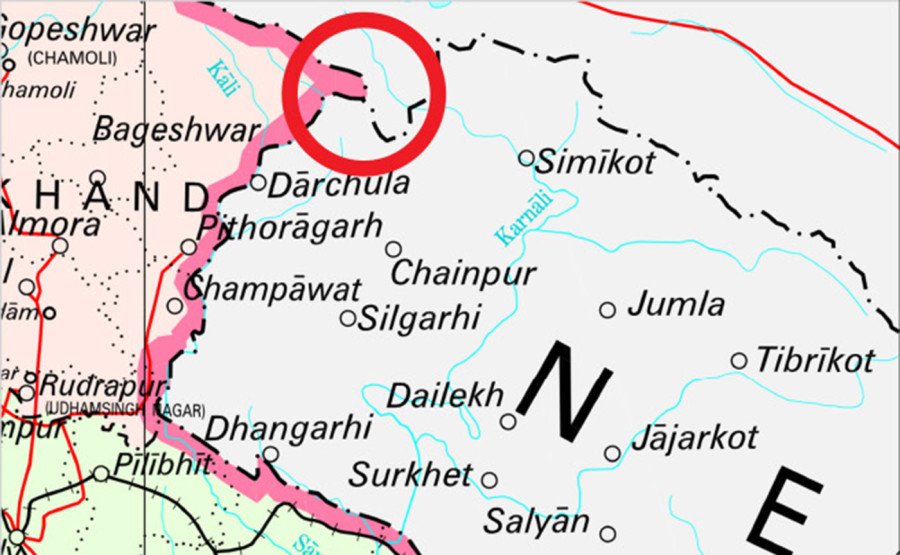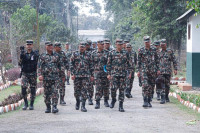National
A month after Nepal’s diplomatic note on Kalapani issue, India finally responds
Although details are scarce, the note has reiterated India’s position vis-a-vis Kalapani and has offered to sit for talks.
Anil Giri
New Delhi has finally responded to a diplomatic note sent by Nepal on November 20 protesting the placement of Kalapani within Indian borders in its new political map.
Foreign Minister Pradeep Gyawali confirmed to the Post that Nepal had received a response from India, but declined to provide details.
“I can confirm that we have received the letter, but I have yet to go through it,” Gyawali told the Post.
In response to Nepal’s diplomatic note, New Delhi has responded via a note verbale, where it has reiterated the position that Indian officials have expressed at various press briefings in New Delhi, a senior Nepali Foreign Ministry official who is familiar with the content of the letter, told the Post.
A note verbale is a form of diplomatic communication that is less formal than a note but more formal than an aide-memoire or memorandum.
India, while acknowledging Nepal’s concerns, has offered to sit for talks at a mutually convenient date, said the official requesting anonymity. Nepal’s note had requested a meeting at the Foreign Secretary-level.
The new Indian political map, released on November 2 to mark the split of Jammu and Kashmir in line with the Narendra Modi government’s decision to repeal the state’s autonomous status, had placed Kalapani within Indian borders, leading to a massive uproar in Nepal.
Pressure has since mounted on the KP Sharma Oli administration to sit for talks with India regarding Kalapani. The opposition Nepali Congress and a section of the ruling Nepal Communist Party have both expressed dissatisfaction at the government for not doing enough to ensure talks with India.
Immediately after India released its map, the Ministry of Foreign Affairs had issued a statement asserting that Kalapani is a part of Nepal and that “any unilateral decision regarding outstanding issues that need to be sorted out through mutual agreement will not be acceptable to the Nepal government.”
This note, from the Indian Ministry of External Affairs, is India’s first official communication with Nepal since the issue emerged.
Ministry Spokesperson Raveesh Kumar, in the past, had maintained that the new map has not revised India’s boundary with Nepal and that the map “accurately depicts the sovereign territory of India.”
Responding to the Post’s query during a weekly press briefing in New Delhi on December 12, Kumar said that discussions on the border dispute would take place through diplomatic channels.
In its note, the Ministry of Foreign Affairs had offered to hold talks on November 23 either in Kathmandu or New Delhi.




 16.96°C Kathmandu
16.96°C Kathmandu














